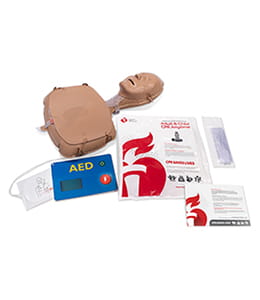 Go Red for Women®
Go Red for Women® Meet the 2026 Go Red for Women Class of Survivors
This annual group of heart disease and stroke survivors helps raise awareness and inspire other women to take charge of their health and well-being.

Women motivate each other. Educate each other. Support each other. Inspire each other. Let’s Go Red together to be seen, to be counted, to be heard, to make an impact.
Cardiovascular disease is the No. 1 killer of women
Since 2004, the American Heart Association’s signature women's initiative, Go Red for Women, has addressed the awareness and clinical care gaps of women’s greatest health threat, cardiovascular disease (CVD). We are prepared to meet the evolving needs of women now, and at every age, every stage and every season of their lives as their trusted, relevant source for credible, equitable health solutions.
![]()
Nearly 45% of women ages 20+ are living with some form of cardiovascular disease.
![]()
Less than half of women entering pregnancy in the U.S. have optimal cardiovascular health.
![]()
Women experience unique life stages, such as pregnancy and menopause, that can put them at an increased risk for CVD.
What’s Happening Now
Teen Shares Her Lifelong Heart Journey to Help Others

Born with heart disease, Emilee Sparks also survived sudden cardiac arrest and received a heart transplant eight months later. Now, the 18-year-old inspires other young women with heart conditions.
Sound, Style and Impact at the Red Dress Collection® Concert

The 2026 Red Dress Collection Concert was held on Jan. 29 in New York City. Music and fashion took center stage - all to raise awareness about cardiovascular disease, the No. 1 killer of women.
A Brighter Beginning with Life’s Essential 8™ for Pregnancy

Good cardiovascular health starts before birth as a mother’s health can influence that of her baby’s. The American Heart Association’s Life’s Essential 8™ for Pregnancy can help you (and your bundle of joy) start strong in pregnancy and beyond.
Go Red Together
Find ways to get connected to and support other women.
Connect to a Healthier You
Learn more about risks, prevention, healthy lifestyle, risk reduction and more.
Connect with Your Community
Volunteer, attend an event, join a philanthropic group, or connect on social media.
Connect to Support
Living with cardiovascular disease or caring for someone who does? Find support.
Connect with Research
Participate in research and inspire the next generation of women leaders in STEM careers.
Connect to Make an Impact
Help advance our mission and advocate for policies that support all women’s health and well-being.
Supporting Women at Every Age and Stage of Life
Pregnancy and Maternal Health

Heart disease is the No. 1 killer of new moms. It can pose a threat to women’s heart health during pregnancy and later in life.
Mom Life

Moms, grandmothers, aunts and other maternal figures do so much for their families. But this can mean taking care of their health sometimes comes last.
Menopause

Prioritizing your health is important before and after menopause. Learn about menopause, its symptoms and impact on your health.
Go Red Gear
Pins, pamphlets, shirts and more! We have everything you need to Go Red to
raise awareness, show your support and help fund our mission with every purchase.
Shop & Go Red! raise awareness, show your support and help fund our mission with every purchase.




